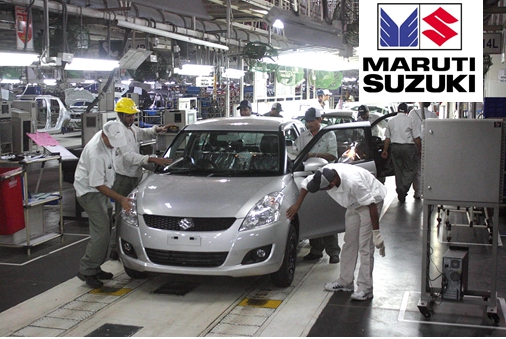To hire only the best, the automobile manufacturer has eliminated middlemen who hire contract workers just for the sake of filling up positions rather than ensuring quality checks.How Maruti Suzuki ensures quality hires at grassroot.
When it comes to quality and excellence, Maruti Suzuki has always stayed a step ahead in ensuring that it does things in the best possible way, and it starts at the ground level. In an endeavour to hire only the finest even at the lowest level, or on contract, the automobile manufacturer has done away with the middlemen who hire workers just for the sake of filling up positions rather than ensuring quality checks.
At its plant in Manesar, Maruti Suzuki is hiring contract or temporary workers directly from various industrial training institutes or ITIs, eliminating contractors. Vinod Rai, head-HR (supply chain & vendors), HR transformation leader, ?Maruti Suzuki India, tells HRKatha that the company has been hiring contract workers directly since 2012.
“Be it for the temporary workers, when the candidates are assessed at various stages, it helps ensure the quality of manpower you’re accumulating. This is where the foundation of business success is laid, and it needs to be strong.”
“The purpose behind doing away with the middlemen while hiring workers at the base level is to ensure quality hires even at the ground level, as this brings a great difference in the final outcomes and the overall organisational culture,” he says.
Rai shares that as in the case of permanent workers, the hiring process for contract labour also has various steps to ensure that only the deserving candidates are chosen. After clearing a written test, the candidates undergo two levels of interviews, followed by a medical test and background verification checks.
“Be it for the temporary workers, when the candidates are assessed at various stages, it helps ensure the quality of manpower you’re accumulating. This is where the foundation of business success is laid, and it needs to be strong,” Rai says.

Unlike the contractors who may randomly pick and choose candidates for the positions available, the recruiters from Maruti Suzuki focus on various aspects, while hiring. The softer aspects, such as a candidate’s willingness to learn, sincerity of purpose, cultural background or upbringing and devotion or commitment to the job are the subjective parameters on which the recruiters asses the candidates.
“No doubt, it involves more time, effort and cost, but it is well worth all of it. The RoI has been significant, which is why we have been thinking of upscaling this initiative to other facilities,” Rai shares. However, that will take time as the efforts that go into the process are large-scale and need meticulous planning.
From a team of about five to six interviewers or recruiters visiting the campuses, spread across the nation, to arranging for the travel and stay for so many selected workers who come from remote areas, the logistics planning and cost involved are quite significant. Nevertheless, the car maker has seen a huge difference in the impact of the process of hiring. It ensures quality candidates and gives the workers more credibility along with a hope that the company is likely to consider them as and when vacancies for permanent positions arise.
“No doubt, it involves more time, effort and cost, but it is well worth all of it. The RoI has been significant, which is why we have been thinking of upscaling this initiative to other facilities.”
Maruti Suzuki has a hold over 47 per cent of India’s passenger vehicle market and has adopted various industrial training institutes in the past few years to maintain a regular supply of skilled workers at its factories. It hired 1,749 temporary workers from various institutes in India, during the last fiscal.
Maruti Suzuki has always focussed on excellence and quality assurance in line with PM Modi’s view of manufacturing quality products in India. In November 2016, the company had also announced its plans to set up the Japan-India Institute of Manufacturing to train 300 Indian youth per year, in technical trades and Japanese shop-floor practices, such as kaizen (improvement) and quality-control circles, based on curricula developed in Japan, with an initial investment of 32 million rupees.




1 Comment
Can we permanently engage Contract Workers for longer period